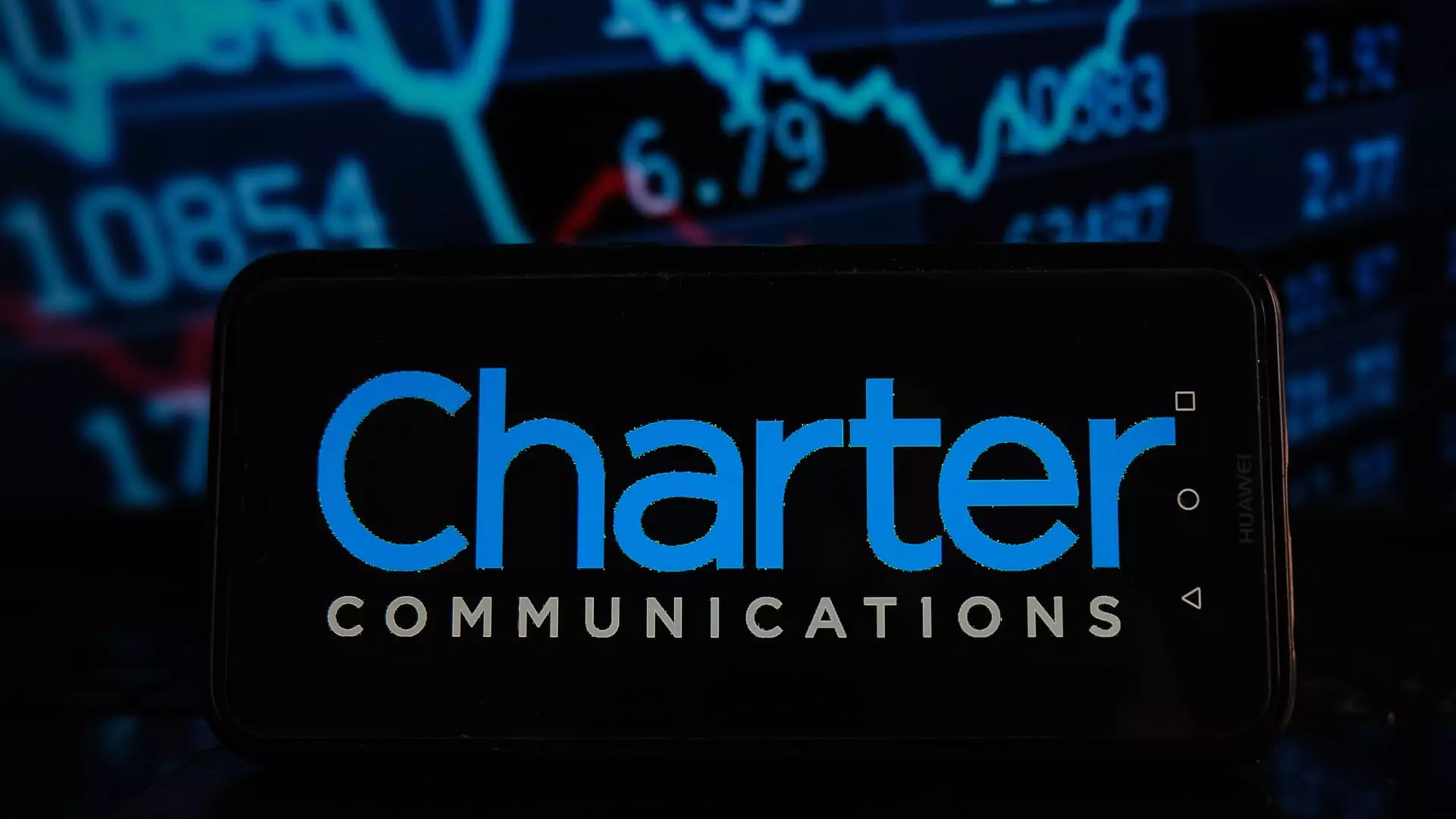In a bold but troubling strategic maneuver, Charter Communications and Cox Communications, two behemoths of the cable industry, have decided to merge, crafting a deal valued at a staggering $34.5 billion. While proponents may herald this as a necessary consolidation aimed at rejuvenating an increasingly beleaguered sector, one cannot ignore the underlying implications and risks this merger holds for consumers and the future of broadband services in America. Such decisions are not merely changes of ownership; they expose the vulnerabilities that come with monopolistic tendencies in an era where innovation and competition are paramount.
At first glance, the merger seems to be the lifebuoy that these cable giants are throwing themselves in the face of increasing competition from wireless operators and alternative internet services. But here’s where the trouble lies: rather than innovating and improving service offerings, these companies are choosing to merge and consolidate in a bid to increase market control. The landscape they inhabit is already shifting dramatically, with traditional cable television viewing plummeting as customers flee to more affordable, flexible streaming platforms. The challenge of adapting to newfound consumer preferences is being tackled not through customer-centric innovation but through an ambitious corporate power play that value profits over people.
Financials That Reveal More Than They Conceal
The financial structuring of the merger is also a cause for concern. Charter is accruing $12.6 billion in net debt merely as part of the integration process. While they anticipate $500 million in annualized cost savings within three years, such forecasts could be viewed as overly optimistic, especially given the complex and tumultuous landscape of broadband provision. It raises an essential question: how will these savings be realized? Will they surface through layoffs, diminished service quality, or even reduced investment in technology and infrastructure?
Moreover, it becomes concerning when a privately family-run entity like Cox gets a significant stake in the new amalgamation, potentially steering policies favorably for its interests rather than those of the customers. While Cox Enterprises will hold about 23% of the combined entity’s shares, they also wield substantial influence over decisions made at the board level, with promises of service quality and competition that seem more performative than substantive.
A Dwindling Customer Base and Waning Loyalty
Adding another layer of complexity to this merger is the alarming customer attrition rates these companies have been experiencing. Charter’s latest quarterly reports reveal a decline of 60,000 broadband subscribers and an even steeper drop in cable TV customers—181,000 in the same period. These figures depict a sobering reality: even as giant corporations pool their resources, they are struggling to deliver services that entice customers to stay. Their solution appears to pivot around aggressive bundling and pricing of mobile lines, leveraging the idea that they can compensate for lost cable subscriptions. Yet, this short-sighted strategy fails to address the growing consumer dissatisfaction.
In the face of rising wireless competitors, the inclination for Charter and Cox to retreat into their shells, merge resources, and reduce operational costs, is the antithesis of what consumers have come to expect. Customers do not desire a corporate giant that engages in mergers rather than innovations; they are seeking reliable, quality services that are affordable and adaptable to modern needs. The consistent loss of subscribers indicates a deeper issue—consumers are not just unhappy; they are looking for alternatives.
Innovation vs. Monopolization: The Consumer’s Wager
So, where do we move from here? This merger, while financially titanic in scale, highlights a troubling trend in the market where consolidation leads to monopolization, stifling innovation. What exists now is more than a mere business transaction; it is a signal to consumers that they may soon face a landscape where choices dwindle and loyalty becomes irrelevant.
To navigate these challenges, there must be a commitment to consumer needs over corporate greed. As citizens, we must demand more from these companies and advocate for regulatory frameworks that encourage not just competition, but the elevation of service standards. In an environment that is rapidly evolving with new technology, it is crucial to keep a close eye on these industry giants and hold them accountable—not just for financial performance but for their responsibility towards the consumers they serve. The landscape is indeed changing, but whether this merger is a step forward or a regression into corporate myopia remains to be seen.

